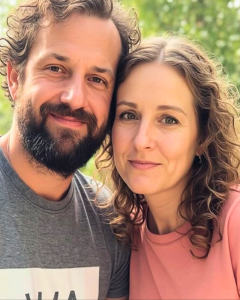
He Told Me We Couldn’t Have Children — But I Discovered He Made Sure of It
It was supposed to be a normal Saturday. Just another kids’ birthday party — cake, chaos, laughter, and the faint…

The late afternoon hum of Miller’s Diner was peaceful — the kind of quiet that settles over small-town America just before sunset. Forks clinked against plates, coffee steamed from half-empty mugs, and an old jukebox hummed an Elvis tune in the corner.
At the counter sat Sergeant Daniel Whitmore, a decorated veteran just back from his final deployment. His hands were rough, his eyes tired, but his instincts — honed by years in the field — were as sharp as ever.
He wasn’t supposed to notice. He told himself he was done noticing.
But when the door chimed and a man entered holding a little girl’s hand, something inside him stirred.
The girl couldn’t have been more than three years old. Her blond hair was tied in uneven pigtails, her cheeks pale, her wide blue eyes darting nervously from face to face. The man — in his mid-30s, unshaven, wearing a baseball cap — barked for a booth and ordered for both of them without asking what she wanted.

Daniel watched as the man scrolled through his phone, barely looking at her. The girl picked at her pancake with tiny fingers, shoulders trembling.
Then it happened.
She looked up. Their eyes met. And slowly — deliberately — she raised her hand.
Her thumb tucked against her palm.
Her fingers folded down over it.
The S.O.S. hand signal.
Daniel froze. He’d seen it in military briefings — the international sign for “I’m in danger.”
He forced his breathing steady. He didn’t want to scare her or alert the man. So, he smiled gently, reached into his jacket pocket, and pulled out a small butterscotch candy.
“Hey there, sweetheart,” he said, voice calm. “Want a treat?”
The man’s reaction was instant. His hand shot out, striking the girl across the face. The sound cracked through the diner like a gunshot. Plates stopped clattering. Conversations died mid-sentence.
“She’s allergic,” the man snapped, eyes blazing. “Mind your own damn business.”
Daniel’s jaw tightened, but his training took over.
He stood up slowly, gave a polite nod, and walked toward the payphone by the door.
He didn’t dial family or friends.
He called the sheriff.
“Possible abduction. Miller’s Diner. Need units now.”
Within minutes, the wail of sirens filled the air. Sheriff Tom Harlan — a burly man Daniel knew from town — pushed through the door, his hand resting on his gun.
The man didn’t panic. He smirked.
“Is there a problem, officer?”
“Sir, we just got a call,” Harlan said carefully. “Mind if we see some ID?”
The man chuckled, reaching into his backpack. He pulled out a folder — neat, official-looking papers: a birth certificate, custody documents, even a driver’s license. Everything matched.
“See? I’m her father,” he said smugly. “We’re traveling. She’s just tired.”
The sheriff studied the papers, then looked at Daniel. His expression said this looks bad.
Without clear evidence, they had no grounds to detain him. Protocol was protocol.
“Sir, you’re free to go,” the sheriff finally said.
The man smiled in triumph, grabbed the girl’s wrist, and started to walk away.
That’s when the girl turned.
Her tiny hand tugged at the sheriff’s sleeve.
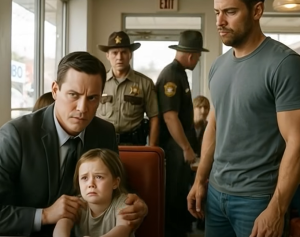
He leaned down, and she whispered — barely audible, trembling:
“He’s not my daddy.”
The entire diner went silent.
For a heartbeat, no one moved. Then the sheriff straightened, eyes blazing. “Sir, I’m going to need you to step aside.”
The man bolted for the door. Daniel lunged, tackling him before he made it three steps. Chairs crashed. A coffee mug shattered on the floor.
Minutes later, the cuffs clicked shut.
The papers were forged. The man — later identified as Mark Delaney, a wanted suspect linked to a child trafficking ring — had abducted Emily from a rest stop two states away.
When the girl was reunited with her real parents later that night, Daniel stood quietly by his truck, watching. The mother clutched Emily like she’d never let go again, sobbing into her hair.
The sheriff approached Daniel and put a hand on his shoulder.
“Good eyes, soldier,” he said softly.
Daniel nodded, swallowing hard. “She was brave. She saved herself.”
As he drove away, the neon diner sign flickered behind him. For the first time since returning home, Daniel felt something warm break through the fog that war had left in him — hope.
Sometimes, heroes don’t wear capes or carry guns.
Sometimes, they just notice.

It was supposed to be a normal Saturday. Just another kids’ birthday party — cake, chaos, laughter, and the faint…
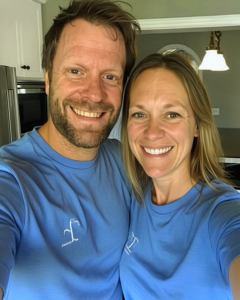
When I dropped the wedding invitations into the mailbox, I felt like the happiest woman alive.Months of planning, budgeting, and…

When Julia nearly dies during childbirth, she expects her husband to be her rock during recovery. Instead, he becomes distant…
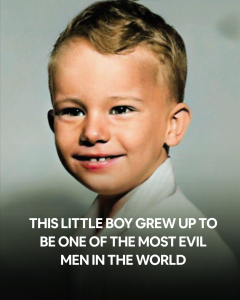
On a warm spring day in May 1960, a baby boy was born in Milwaukee, Wisconsin. His parents, a young…
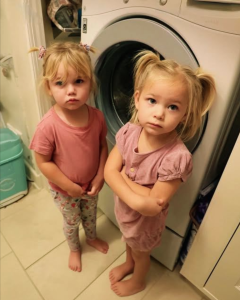
I’m 34 years old, and for the past three years, it’s just been me and my twin girls — Bella…
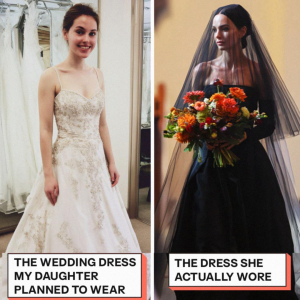
My name is Linda; I’m 55 years old, and last weekend, my daughter, Jane, 33, walked down the aisle in…

Actor and director Justin Baldoni has officially missed his final opportunity to appeal a ruling that dismissed his $400 million…

When people think of papaya, they usually picture the fruit – golden orange, juicy, and sweet.…

White Clover – a small, humble plant often seen carpeting meadows and lawns – is…

It was supposed to be a normal Saturday. Just another kids’ birthday party — cake, chaos, laughter, and the faint…

When I dropped the wedding invitations into the mailbox, I felt like the happiest woman alive.Months of planning, budgeting, and…

When Julia nearly dies during childbirth, she expects her husband to be her rock during recovery. Instead, he becomes distant…